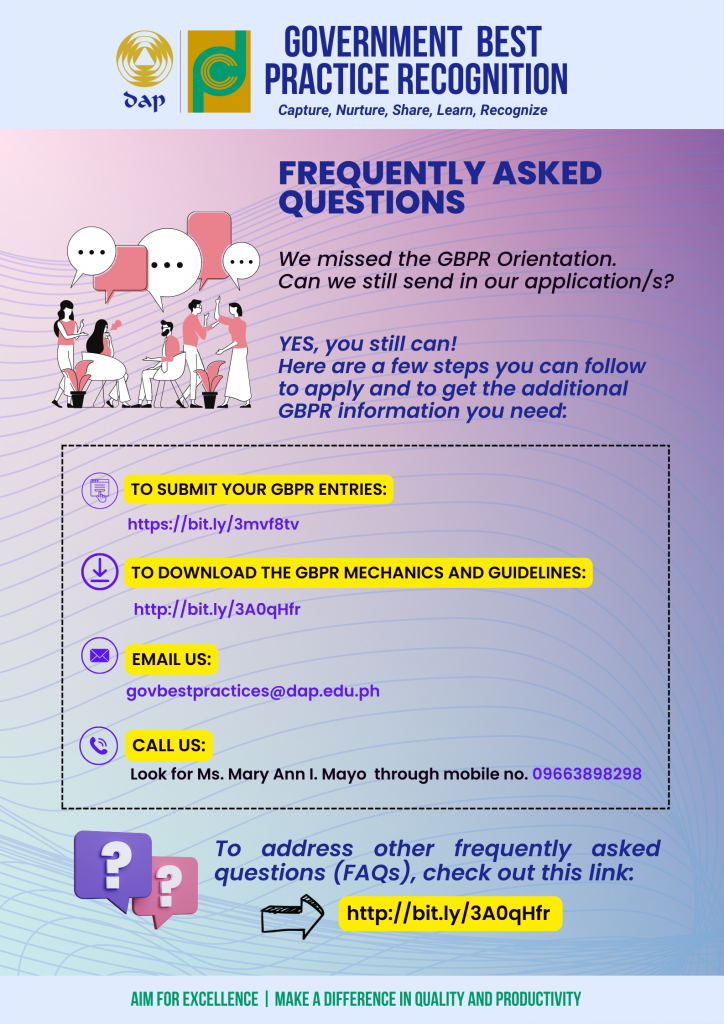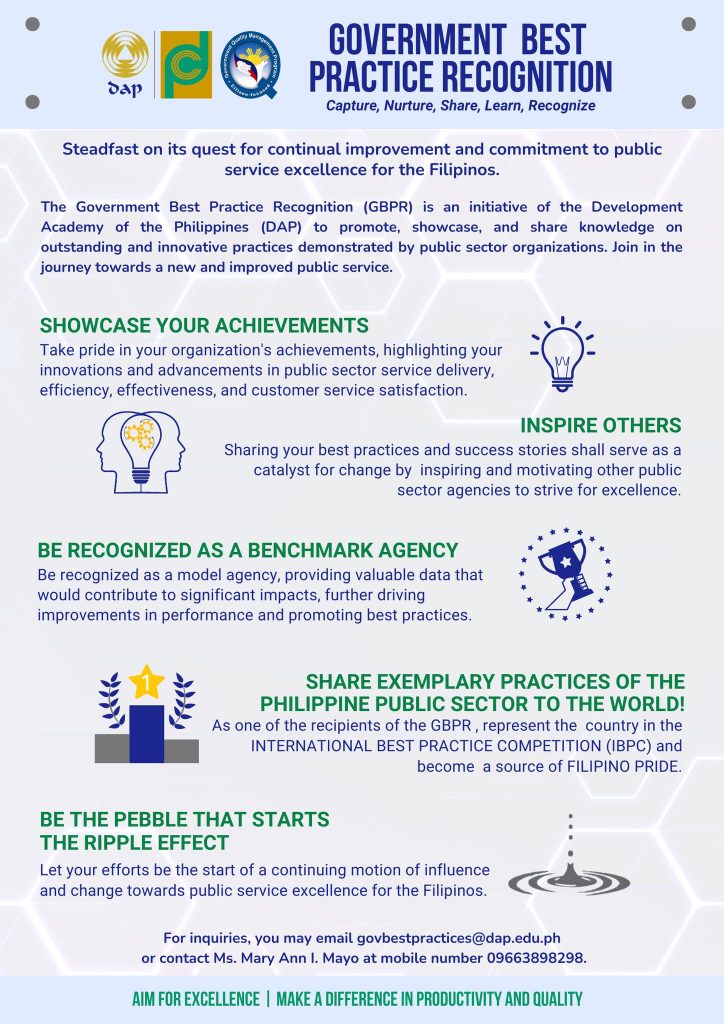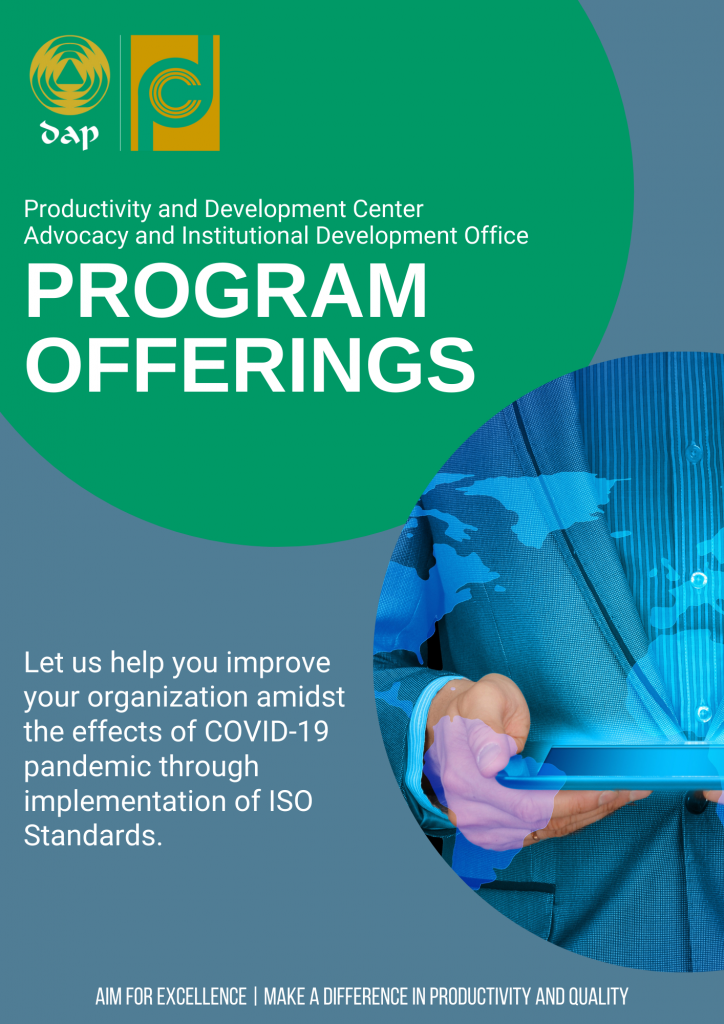Mid-term, End-of-project, Policy and Impact Evaluations
The Productivity and Development Center offers mid-term, end-of-project, and impact evaluations as part of its research services. These evaluation types mainly depend on the stage of the policy, program or project implementation each having specific objectives. The following are the evaluative services:
- Mid-term Evaluation — or mid-term review, is conducted for an ongoing policy, program or project. By conducting this evaluation, we are able to provide our clients with a basis for identifying appropriate actions to address issues in design, implementation, and reinforce initiatives that may facilitate achievement of program success.
- End-of-project Evaluation — also known assummative evaluation, is intended to be carried out immediately at project conclusion. Our team examines project outputs and outcomes by comparing achieved results with baseline results. These give clients and stakeholders information about project success, lessons learned, and areas for improvement that will be crucial in developing similar undertakings in the future.
- Policy Evaluation — examines different policies’ content, implementation, as well as its results and impact through a methodical approach and assessment. Evaluation is a significant step in the refinement of policy-making processes for continuous learning and accountability.
- Impact Evaluation — provides an analysis or information about the overall impact of a particular intervention. We use this as basis for attribution of the observed changes in reference to the indicators crucial for the decision-making of our client agencies. The intervention can be a project, program, collection of activities, or a policy. An impact evaluation is intended to improve or reorient an intervention or to inform decision-makers about whether to pursue, cease, replicate, or scale up an intervention.
- Baseline Study – a good, reliable, and well-thought-out impact evaluation study comes with a good baseline study. Baseline study or starting point is done at the beginning of the program or project to identify the current status/condition of the program/project’s target beneficiaries, this status will be used to serve as comparison with future progress. The Food and Agriculture Organization in 2013 defines baseline study as “a descriptive cross-sectional survey that mostly provides quantitative information on the current status of a particular situation – on whatever study topic – in a given population. It aims at quantifying the distribution of certain variables in a study population at one point in time.”
It is in these contexts that the PDRO has undertaken several broad-based studies in the agricultural industry to address issues and challenges on efficiency and productivity and provide sound recommendations for evidence-based policy development and interventions. In all its assessment studies, the PDC is guided by the national evaluation policy framework as prescribed by the National Economic and Development Authority covering, at the minimum, evaluation parameters as follows: a) efficiency; b) outcomes; and, c) impact based on national priorities. The primary audience and/or users of assessment/evaluation studies are program/project implementers, decision-makers, funding institutions, oversight agencies, and designated sectoral watchdogs from the private sector and/or non-governmental organizations (NGOs), among others.
















